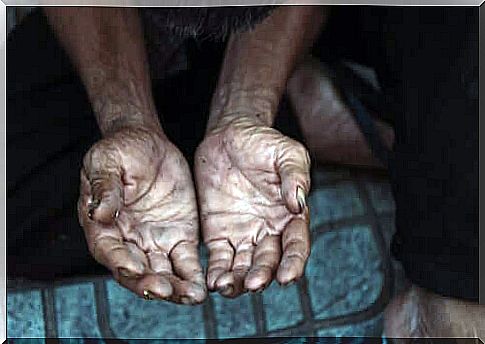Social Services’ Role In The Fight Against Poverty

The financial crisis from 2008 further widened the gap between rich and poor. The effects of the crisis marginalized thousands of people and put them in serious economic situations. The most vulnerable members of society felt the greatest impact, which led to a significant increase in the demand for social services fighting poverty.
In general, people associate poverty with low wages. Researchers often measure poverty by individual income or household income. However, there are no universal or absolute criteria, only relative ones. These relative criteria take into account the time period and the relevant geographical area to analyze poverty and average income level (Del Barrio, 2014).
It is important to understand that the concept of poverty is multidimensional. It is not a single focus or affected area.

Poverty and marginalization
As we mentioned above, there is no definition or classification of poverty. There are many different ways to measure this phenomenon (Del Barrio 2014):
- According to the information you use to measure it. Objective or subjective.
- Taking into account the reference used to establish the poverty line. Absolute or relative.
- According to the time period of the subject of the study. Transversal (during a particular year) or long-term.
- Of the analysis based on inability to access basic resources. Multidimensional deficiency.
For the United Nations Development Program (UNDP), poverty means denial of alternatives and opportunities to live a sustainable life. This program uses the Multidimensional Poverty Index (MPI) as a reference to determine who is living in poverty. The UN created the MPI to reflect the effects and intensity of the shortcomings that people suffer from.
The concept of marginalization is similarly multidimensional. It affects individuals, groups of people and geographical areas. Consequently, you can look at marginalization in terms of income, health, education, access to services, housing and debt. According to Spicker, Alvares and Gordon (2009) marginalization can lead to the following problems:
- Homelessness.
- Urban crises.
- Ethnic tension.
- An increase in long-term unemployment.
- Persistently high poverty levels.
The role of social services in the fight against poverty
There is no doubt that social services are a fundamental pillar of an integrated healthcare system. Professionals who work every day to help people in need take the time to study each case. As a result, they understand the need for guidelines that can be adapted to each situation.
Although there are many services that only help to improve or fix problems that arise, the idea is not just to put a patch on the problem.
That is why it is so important to avoid paternalism and focus on empowerment. Social services need to work with individuals and help them develop the skills they need to cope with their everyday struggles. Education is the only way to ensure that poverty does not become chronic.
Generally, individuals must meet certain requirements to have access to existing services. Some of the available resources include:
- Help with rent or mortgage.
- Food coupons.
- Discounts or income-based help for electricity bills.
- Financial assistance for people who meet certain income limits.
- Non-contributory pensions.
- Helping people find work.
- Education.
- Family resource planning and organization.
Although money is extremely important in getting people out of poverty, priority should be given to helping individuals and families to come up with long-term solutions to their problems. Creating individualized projects with achievable goals is ultimately the best solution.
We can conclude that the goal of social services is not to create addiction; it is to help create a society of free and autonomous people who are able to solve their problems and live their lives.









